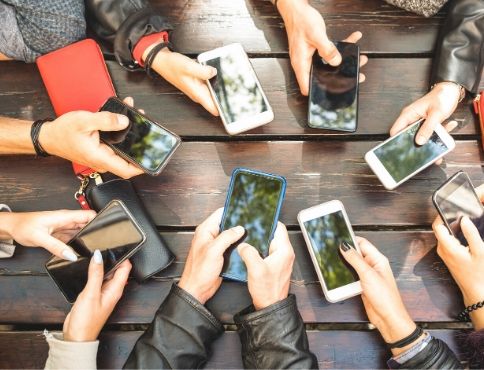Phishing is any attempt to obtain sensitive information, such as passwords, usernames, personal details, account numbers, etc., for fraudulent purposes. Phishers may solicit information via email, phone (vishing, short for voice phishing), or text message (smishing).
- The “employer” you communicate with uses web-based services such as Gmail, Yahoo, Hotmail, Outlook, etc.
- You are asked to receive funds in your personal bank account and then “process” or “transfer” funds via wire transfer, ACH, mail, or money service businesses, such as Western Union or MoneyGram
- You are asked to open bank accounts in your name for a business
- You are told to keep a portion of the money you transfer
At PCH the winning is always free and you NEVER have to pay to claim a prize. Recognizing the difference between legitimate sweepstakes and other types of offers that may not be legitimate will help you protect yourself and your family.
If someone contacts you claiming to be from PCH, and tells you that you’ve won a prize– then asks you to send a payment or money card in order to claim the prize – STOP! You have not heard from the real PCH.
Learn more about the PCH scams at https://info.pch.com/fraud-protection-2/
IRS scams are an increasingly common threat. A caller says they are with the IRS and threatens some sort of “consequence” if you don’t pay overdue taxes immediately. They will ask you to pay via gift card, preloaded credit card, or wire transfer.
The real IRS will never threaten you over the phone with arrest or deportation, and it cannot revoke your driver’s license. Anyone making these threats is a phony. The IRS notifies taxpayers of monies owed via mail. They may come to your door or business unannounced to collect a debt, but they will not ask you to address payment to anyone other than the U.S. Treasury. These scams happen often enough that the IRS offers a guide to help you know if you’re being contacted by a real IRS representative or a fake.
Quizzes and games spread like wildfire on social media, such as Facebook. If these quizzes ask for personal information, like your pet’s name, the street where you first lived, your mother’s maiden name, or where your parents met, they may be a scam. Fraudsters use the guise of “discover your superhero/rockstar/etc. name” to collect information they can use to hack into your accounts.
If you receive a text, email, or social media notification saying you’ve won a trip, prize, or lottery that you don’t remember signing up for, don’t click any links or give out information. Often scammers will ask for bank account information to collect “taxes” on your winnings. U.S. law doesn’t allow the purchase of international lottery tickets, so if someone claims you won a lottery in another country, it is a scam.




